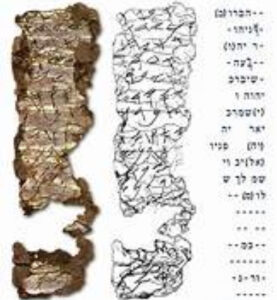Home > Divrei Torah > Parashat Shoftim – 5785
Parashat Shoftim – 5785
August 26, 2025
by Rabbi Enid C. Lader ('10)
One to Keep Before You… And One to Carry with You
A D’var Torah for Parashat Shoftim
By Rabbi Enid C. Lader
As Moses continues his instructions to all the people of Israel as they [we] are preparing to enter the Promised Land, he says:
“You shall be free to set a king over yourself, one chosen by the Eternal your God… He shall not keep many horses… He shall not have many wives, lest his heart go astray; nor shall he amass silver and gold to excess.
When he sits on the throne of his kingdom, he is to write himself a Mishneh Torah – a copy of this Instruction – in a scroll, before the presence of Levitical priests. Let it remain with him and let him read in it all the days of his life, so that he may learn to revere the Eternal his God, to observe faithfully every word of this Teaching as well as these laws. Thus, he will not act haughtily toward his fellows or deviate from the Instruction to the right or to the left, to the end that he and his descendants may reign long in the midst of Israel.” Deut. 17:14-20
In his Torah commentary, Netivot Shalom (translated by Ben Madsen in The Infinite and The Immanent) Rabbi Shalom Noach Berezofsky (born in 1911 in Belarussia to become the rebbe of the Slonim dynasty from 1981 to his death in 2000) explains how these verses are instructing not only the king, but us as well, to turn away from evil and then do good. Too many horses can create unfounded trust in physical forces and strength, and the possibility of turning away from God. Too many wives – too many wayward eyes – can turn hearts away from God. Too much gold and silver – too much wealth – can give a false sense of security and superiority – and cause one to turn away from God.
In previous verses, Deut. 16:21-17:4, Moses instructs the people against setting up a sacred post or erecting a stone pillar, not to sacrifice an ox or a sheep that has a serious defect or to worship other gods… all are abhorrent to God… and all cause the turning away from God.
So, how does the king know – how do we know – how to do good?
Our verses continue with the instructions for the king to write a “Mishneh Torah.” Rashi teaches that “Mishneh Torah” does not mean a copy of the Torah, but the king is enjoined “to write two scrolls of the Law, one that is placed in his treasury and the other that goes out and comes in with him (i.e. a small scroll which he carries everywhere with him).” The rabbis of Sanhedrin 21b go on to describe that small scroll:
The baraita continues: With regard to the one that goes out and comes in with him, he makes it very small, like an amulet, and he hangs it on his arm, as it is stated: “I have set the Lord always before me; He is at my right hand, that I shall not be moved” (Psalms 16:8). This alludes to the small Torah scroll that is always on his right hand.
For the Netivot Shalom, these two scrolls correspond to a personal scroll that we keep in our own treasury – our own home, and the second scroll is the one we carry with us out into our daily lives. Both scrolls elevate our lives – when we sit in our homes and when we walk by the way. Always in the presence of God.
And what about that little Torah scroll? So small it is like an amulet? Maybe the size of a tefillin box? Or maybe just a small number of verses would be enough to serve as a reminder of being in the presence of God?
Here is an amazing archeological find showing one, of two silver amulets (currently located at the Israel Museum in Jerusalem) bearing the oldest copies of biblical text known to us today.

They are some five hundred years older than the Dead Sea Scrolls. These silver scrolls were found in 1979 in Chamber 25 of Cave 24 at Ketef Hinnom (i.e. the shoulder of Hinnom), during excavations conducted by a team under the supervision of Gabriel Barkay, who was then professor of archaeology at Tel Aviv University.
The amulets, inscribed with ancient Hebrew script, were found rolled into tiny scrolls in a burial cave in Jerusalem. They were incised with a sharp, thin stylus, no thicker than a hair’s breadth, and thus deciphering the inscription was difficult. The lower parts of both inscriptions have been identified as a version of Numbers 6:24–26 (known as the Priestly Benediction): “May the Eternal bless and protect you. May the Eternal deal kindly and graciously with you. May the Eternal bestow divine favor upon you and grant you peace.”
Very much like the mezuzot and pendent necklaces worn today, these ancient scrolls are evidence of wearing a “second scroll” – a request for God’s protection and… a reminder of the presence of God, wherever we may find ourselves.

